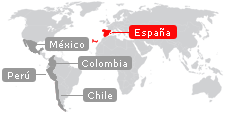Rio’s driverless trucks move 100 million tonnes
Rio Tinto has reached a significant milestone in its use of automated haul trucks in the Pilbara, announcing they have moved more than 100 million tonnes of earth.
Rio Tinto has reached a significant milestone in its use of automated haul trucks in the Pilbara, announcing they have moved more than 100 million tonnes of earth.
The 100 million tonnes includes material from West Angelas operations, Yandicoogina, and more recently the Nammuldi operations.
“Since we commenced trials in December 2008, we have demonstrated improvements in both safety and productivity and in that time we have trained more than 270 employees to operate and work alongside these autonomous haul trucks,” said James Petty, Rio’s general manager mine of the future.
Rio Tinto expect to have more than 40 trucks operating autonomously across three sites in the Pilbara by early 2014.
While Hope Downs 4 is gearing up to start autonomous operations in early 2014, with four trucks ready on site.
Petty said the technologies are revolutionising the way mining is done.
“Our teams managing this equipment recognise the significant opportunity they have to be up-skilled in a mining system which is at the forefront of the global mining industry,” he said.
BHP Billiton's Tony Ottaviano also said BHP was progressing with its automation technology, and a trial project was already underway in the Pilbara.
“We are now setting up our Jimblebar autonomous trial, that's now moved into execution, we will have 12 trucks in a production environment running the Caterpillar autonomy system combined with the caterpillar fleet management system,” he said.
The updates come as global miners continue to look toward autonomous vehicles to help improve productivity and cut costs.
According to a study released earlier this year 50 per cent of international executives believe “substituting technology for labour” will have a positive impact on their business this year.
BDO International, who conducted the research said mining companies were being forced to continually innovate.
BDO global national resources leader Charles Dewhurst said mining industry was at a “critical juncture” and new technology was set to make a huge impact on the sector.
“Technology, and the individuals who are skilled in developing and utilitising these tools, is now more important than ever as demands for greater returns and increased productivity are forcing the industry to innovate,” he said.
28524 Rivas Vaciamadrid (Madrid)



